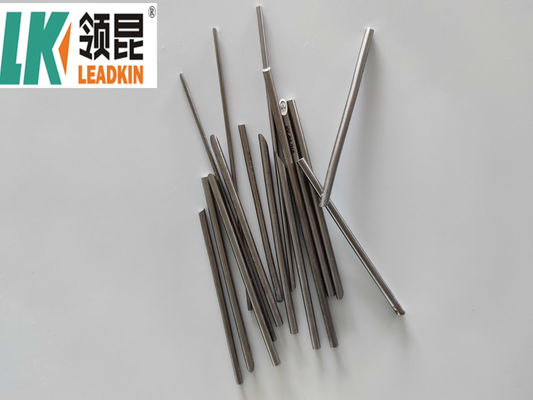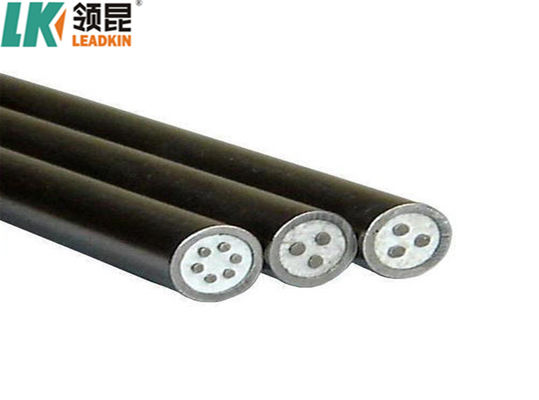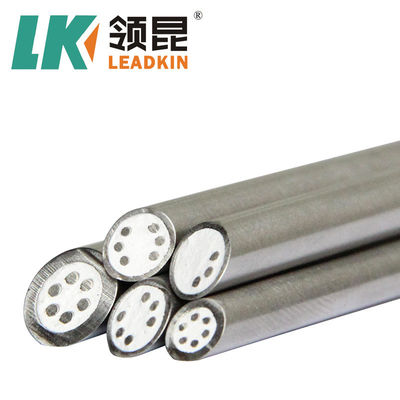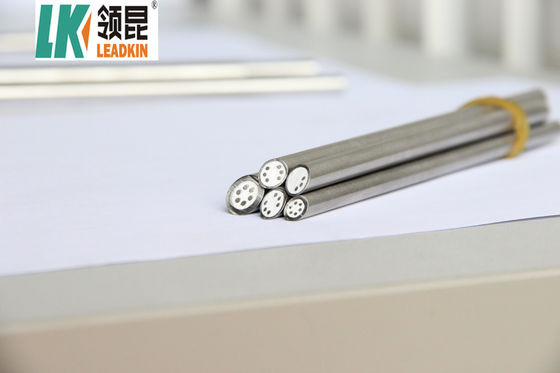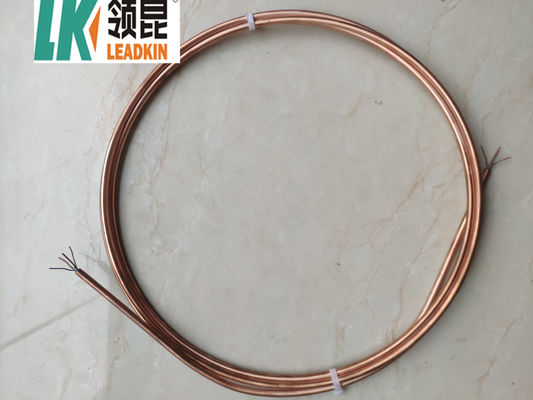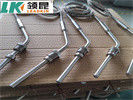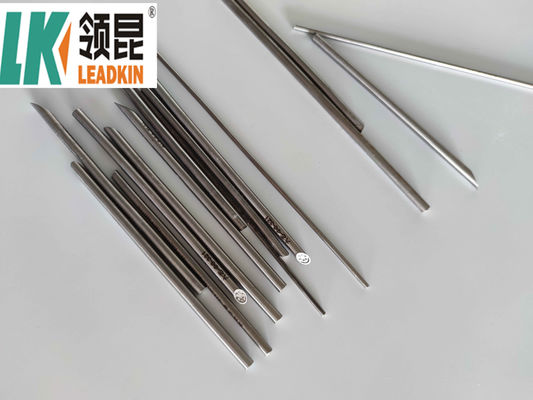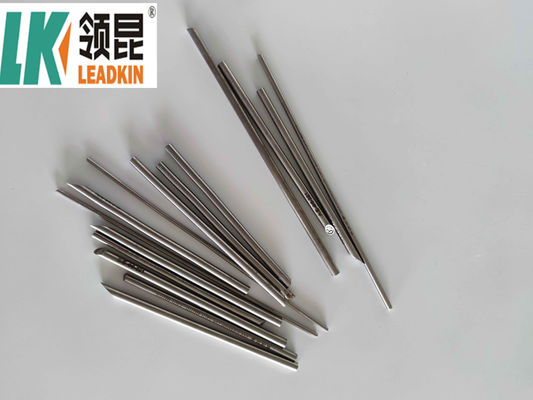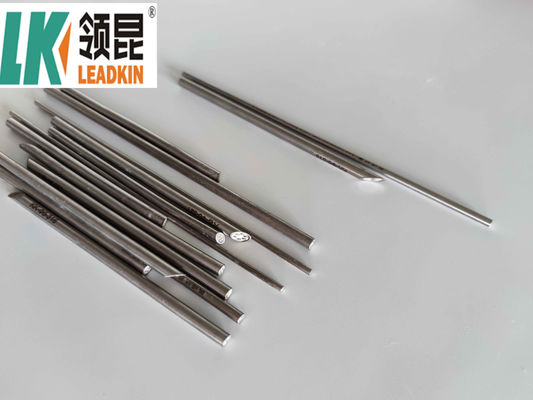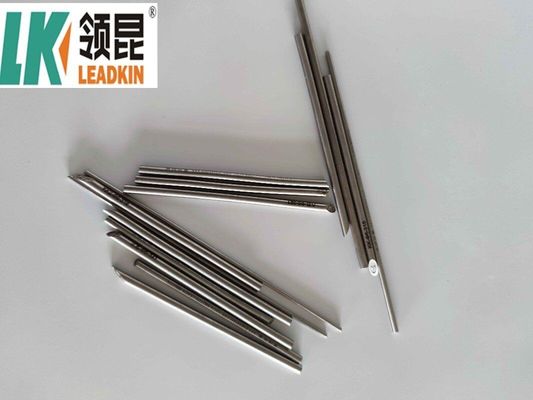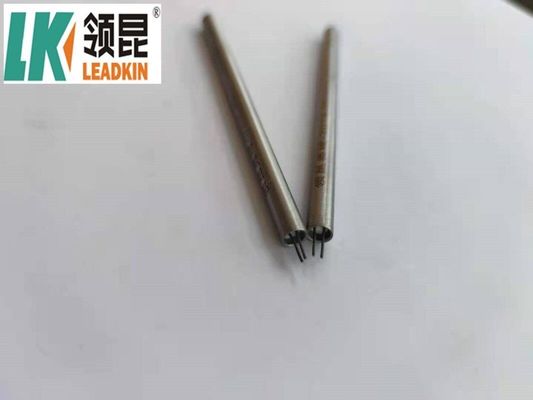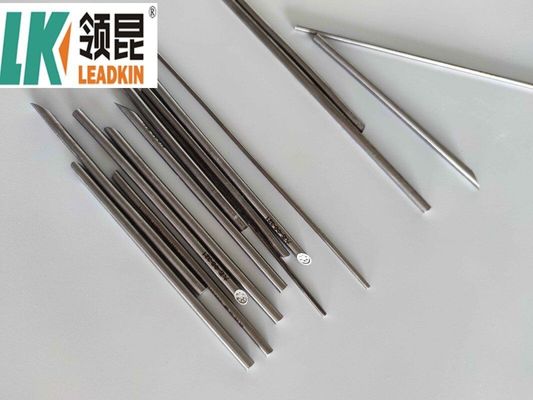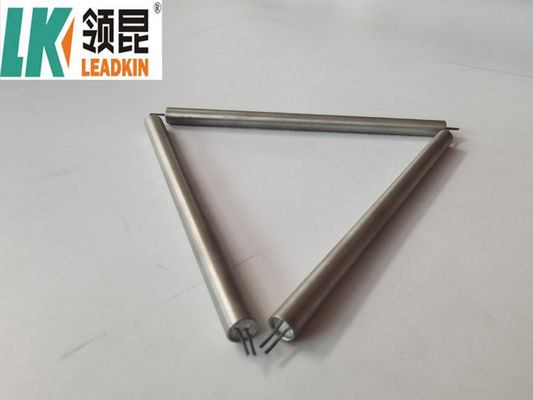Quick Details:
Type: K/N/E/J/T/S/R/B
Place of Origin: Zhejiang, China (Mainland)
Accuracy: I-0.4%t, II-0.75%t, III-1.5%t
Core number: 2,3,4,6
Inorganic mineral insulating lead material: Ni, Cu
Insulator: 99.6% high purity MgO
Certificate:ISO9001, IATF16949, CE
Application: connecting with thermocouple and instrument machine
Sheath material: 0Cr18Ni10Ti, SS304S,SS316L,SS316, Cu
Sheath Dia(mm): φ3.0, φ4.0, φ6.0, φ8.0
Type for Sheath Wire Type K:
| Product Name |
Code |
Type |
Shaeth Material |
Outside Dia. |
Temperature |
| NiCr-NiSi /NiCr-NiAl |
KK |
K |
SS304 SS316 |
0.5-1.0 |
400 |
| 1.5-3.2 |
600 |
| 4.0-8.0 |
800 |
| SS310 Inconel600 |
0.5-1.0 |
500 |
| 1.5-3.2 |
800 |
| 4.0-6.4 |
900 |
| 8.0-12.7 |
1000 |
| NiCrSi-NiSi |
NK |
N |
SS304 SS316 |
0.5-1.0 |
400 |
| 1.5-3.2 |
600 |
| 4.0-8.0 |
800 |
| SS310 Inconel600 |
0.5-1.0 |
500 |
| 1.5-3.2 |
800 |
| 4.0-6.4 |
900 |
| 8.0-12.7 |
1000 |
| NiCr-Konstantan |
EK |
E |
SS304 SS316 |
0.5-1.0 |
400 |
| 1.5-3.2 |
600 |
| 4.0-8.0 |
800 |
| Fe-Konstantan |
JK |
J |
SS304 SS316 |
0.5-1.0 |
400 |
| 1.5-3.2 |
600 |
| 4.0-8.0 |
800 |
| Cu-Konstantan |
TK |
T |
SS304 SS316 |
0.5-1.0 |
400 |
| 1.5-3.2 |
600 |
| 4.0-8.0 |
800 |
| RhPt10-Ph |
SK |
S |
Inconel600 |
6.0-12.7 |
1100 |
Different temperature measuring media and service conditions have an impact on the service life and temperature range of armored thermocouples, the data in the table is only recommended data.
Accuracy for Sheath Wire Type K
| Type |
Class I |
Class II |
| Accuracy |
Temp.Range |
Accuracy |
Temp.Range |
| K |
±1.5℃ |
-40~375℃ |
±2.5℃ |
-40~375℃ |
| ±0.4% |
375℃-1000℃ |
±0.75% |
375℃-1000℃ |
| N |
±1.5℃ |
-40~375℃ |
±2.5℃ |
-40~375℃ |
| ±0.4% |
375℃-1000℃ |
±0.75% |
375℃-1000℃ |
| E |
±1.5℃ |
-40~375℃ |
±2.5℃ |
-40~375℃ |
| ±0.4% |
375℃-800℃ |
±0.75% |
375℃-800℃ |
| J |
±1.5℃ |
-40~375℃ |
±2.5℃ |
-40~375℃ |
| ±0.4% |
375℃-800℃ |
±0.75% |
375℃-800℃ |
| T |
±0.5℃ |
-40~125℃ |
±1.0℃ |
-40~125℃ |
| ±0.4% |
125℃-350℃ |
±0.75% |
125℃-350℃ |
| S |
0-1100℃ |
±1.0℃ |
0-1100℃ |
±1.5℃ |
About this product:
A thermocouple temperature probe is a type of temperature sensor that uses the thermoelectric effect to measure temperature. Here’s a detailed overview of thermocouples, their construction, working principle, types, applications, and considerations:
Overview
Definition: A thermocouple temperature probe consists of two different metal wires joined at one end, which generates a voltage that corresponds to temperature differences. This voltage can be measured and converted into a temperature reading.
Construction
Wires: The probe is made of two different conductive metals (commonly copper, nickel, chromel, alumel, etc.) that form a junction.
Junction: The point where the two wires are joined is called the measuring or hot junction. The other end of the wires is connected to a measuring device (cold junction).
Insulation: The wires are often insulated with materials that can withstand high temperatures, such as ceramic or fiberglass, depending on the application.
Sheath: The entire assembly may be encased in a protective sheath made of metal or ceramic, which protects the thermocouple from the environment.
Working Principle
Seebeck Effect: When the two different metals are joined together and exposed to a temperature gradient, a voltage (thermoelectric voltage) is produced at the junction. The magnitude of this voltage relates to the temperature difference between the hot junction and the cold junction.
Measurement: The voltage generated is measured and converted into temperature using calibration data specific to the type of thermocouple.
Types of Thermocouples
Thermocouples are categorized by their metal compositions, which determine their temperature range and accuracy. Common types include:
Type K (Chromel-Alumel):
Temperature Range: -200°C to 1260°C
Commonly used in general-purpose applications.
Type J (Iron-Constantan):
Temperature Range: -40°C to 750°C
Useful in lower temperature applications.
Type T (Copper-Constantan):
Temperature Range: -200°C to 350°C
Suitable for cryogenic applications.
Type E (Chromel-Constantan):
Temperature Range: -200°C to 900°C
Offers high output voltage and is suitable for low-temperature measurements.
Type N (Nicrosil-Nisil):
Temperature Range: -200°C to 1300°C
Suitable for high-temperature applications and offers good stability.
Type S (Platinum-Rhodium):
Temperature Range: 0°C to 1600°C
Used in high-precision applications, especially in laboratories.
Applications
- Industrial: Used in manufacturing processes, furnaces, and kilns for temperature monitoring.
- HVAC: Employed in heating, ventilation, and air conditioning systems.
- Medical: Used in medical devices for patient monitoring.
- Aerospace: Applied in aircraft and spacecraft for monitoring engine and ambient temperatures.
- Food Industry: Used for monitoring cooking temperatures and food safety.
Advantages
- Wide Temperature Range: Suitable for measuring a broad range of temperatures.
- Durable: Robust construction makes them resistant to harsh environments.
- Fast Response Time: Quick to respond to temperature changes.
Disadvantages
- Accuracy: Less accurate than some other temperature sensors (like RTDs) in certain applications.
- Cold Junction Compensation: Requires compensation for the temperature at the cold junction to provide accurate readings.
Considerations
- Calibration: Regular calibration is necessary to ensure accuracy, especially in critical applications.
- Installation: Proper installation techniques are critical to ensure accurate readings and durability.
- Environment: Choose the appropriate type of thermocouple based on environmental conditions (e.g., corrosive substances, high temperatures).
Applications :
- Solid waste incinerators
- Sintering powdered metals
- Firing ceramic materials
- Gas or oil fired furnaces
- Fuel fired heat exchangers
- Box furnaces
- Nuclear or hydrocarbon based energy plants
- And many more...
- Sheath cables are used in various applications, including:
- Residential wiring
- Commercial electrical systems
- Industrial machinery
- Power distribution
- Outdoor installations
- Heavy-duty equipment
- Environmental Resistance:
- Many sheath cables are designed to resist moisture, chemicals, UV radiation, and temperature fluctuations, making them suitable for a variety of environments.
- Considerations When Selecting Sheath Cables:
- Application Requirements: Choose the type of sheath cable based on the specific application, considering factors like mechanical protection, environmental exposure, and electrical requirements.
- Compliance with Standards: Ensure that the cable meets relevant electrical codes and safety standards for your region (e.g., NEC in the United States).
- Voltage Rating: Verify that the cable's voltage rating is appropriate for your application.
- Installation Method: Consider how the cable will be installed (e.g., conduit, direct burial, etc.) and choose a sheath type that suits that installation method.
- In summary, sheath cables are essential components in electrical installations, providing protection, insulation, and flexibility for a wide range of applications.
Product Pictures:

Company Information:
A. Main Products


B. Package
We add heat shrink tubing and plastic film to make sure high insulated resistance.
Except marking notes, we also have pass card and test report for every coil cable.

C. Mi cable Production line
We have high - quality professional products, as well as advanced product lines and equipments. All of the products comply with international quality standards and are greatly appreciated in a variety of different markets throughout the world.Along the increasing market demands, we continuously satisfy customers by updating products to improve prouduction systems, improve quality.
Order Notice:
1. Accurate quotation.
2. Confirm the price, trade term, lead time, payment term etc.
3. LEADKIN sales send the Proforma Invoice with LEADKIN seal.
4. Customer arranges the payment for deposit and sends us bank slip.
5. Middle Production-send photos to show the production line which you can see your products in . Confirm the estimated delivery time again.
6. End Production-Mass production products photos.
7. Clients make payment for balance and LEADKIN ships the goods. Inform the tracking number and check the status for clients.
8. The order is finished perfectly when you receive the goods and get satisfied with them .
9. Feedback to LEADKIN about Quality , Service, Market Feedback & Suggestion. And we will do better .
1.What are the advantages of using thermocouples?
Wide temperature range.
Fast response time.
Simple and rugged design.
Relatively inexpensive.
Can be used in various environments, including extreme conditions.
2.What are the disadvantages of thermocouples?
Non-linear output, requiring calibration.
Accuracy may be lower than other temperature sensors (like RTDs).
Requires reference junction compensation for precise measurements.
Susceptible to electromagnetic interference.

 Your message must be between 20-3,000 characters!
Your message must be between 20-3,000 characters! Please check your E-mail!
Please check your E-mail!  Your message must be between 20-3,000 characters!
Your message must be between 20-3,000 characters! Please check your E-mail!
Please check your E-mail! 
